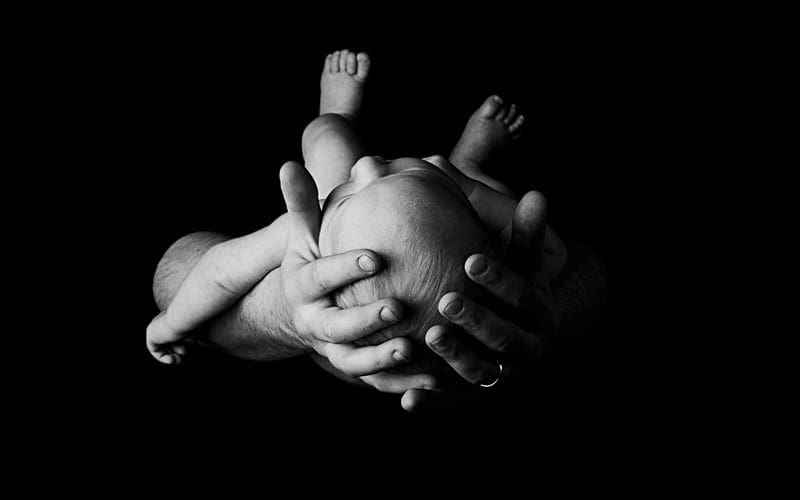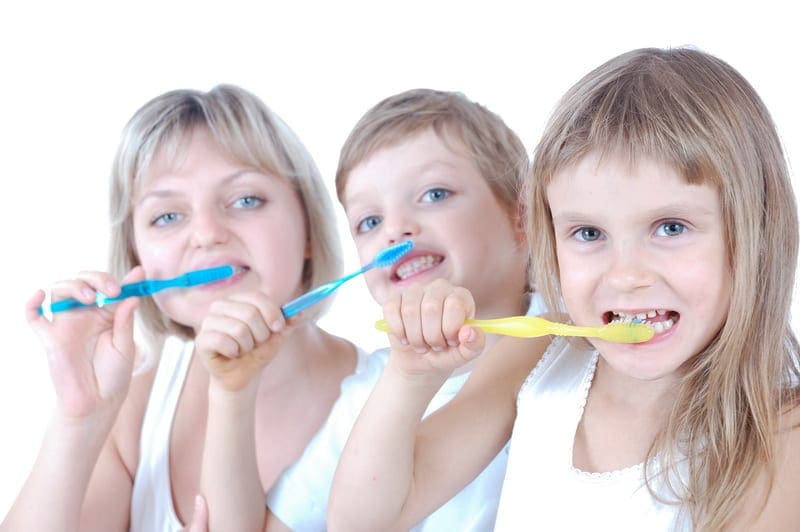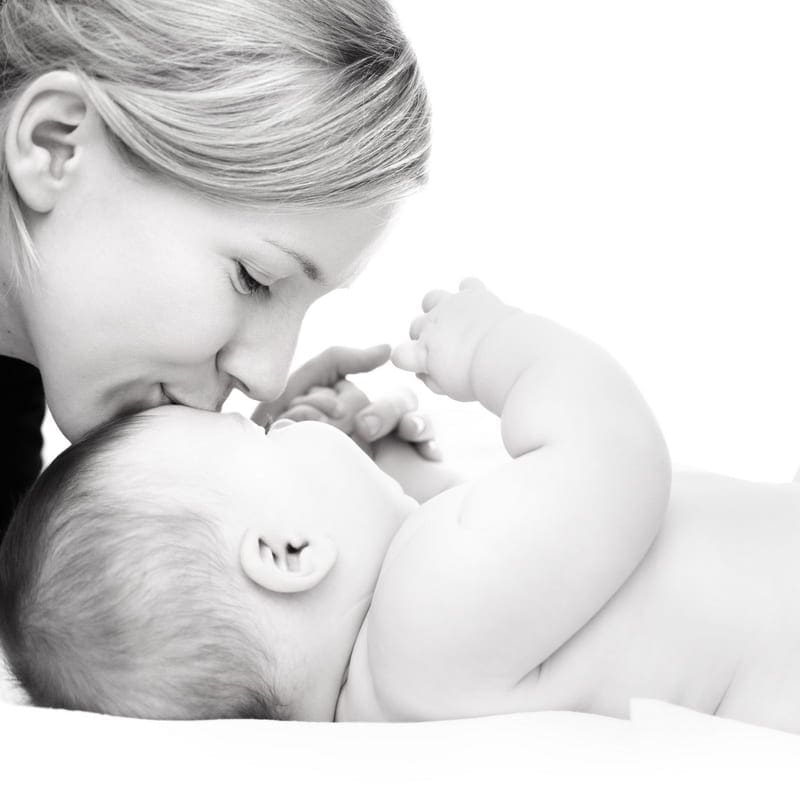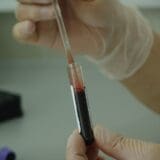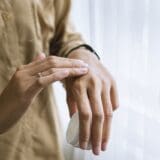During pregnancy, it’s important to take care of your hair to ensure both your own health and the safety of your baby. By following the best practices for pregnancy haircare, you can maintain healthy and beautiful hair throughout this special time in your life.
When it comes to choosing hair products, it’s crucial to opt for safe options that won’t harm your baby. Avoid products that contain harsh chemicals, such as ammonia and formaldehyde, as they can potentially be absorbed into your bloodstream and affect your developing baby. Instead, look for hair products that are specifically labeled as pregnancy-safe or organic.
Managing hair loss is another common concern for expectant mothers. The good news is that there are effective ways to address this issue. One important factor is maintaining a healthy diet. Consuming foods rich in essential nutrients like biotin and iron can promote hair growth and prevent hair loss. Additionally, taking appropriate supplements, as recommended by your healthcare provider, can further support hair health during pregnancy.
It’s also essential to be mindful of harmful styling practices that can damage your hair. Avoid using excessive heat, such as curling irons and straighteners, as they can weaken and dry out your hair. Opt for natural hairstyles and avoid tight hairstyles that pull on your hair, as they can lead to breakage and hair loss. Embrace gentle and low-maintenance styles to keep your hair healthy and strong.
Dealing with scalp issues, such as dandruff and itchiness, is another aspect of pregnancy haircare. Fortunately, there are safe and effective remedies you can try. For dandruff, use a mild, anti-dandruff shampoo that is free from harsh chemicals. To soothe itchiness, consider using a gentle scalp moisturizer or applying natural remedies like aloe vera gel or coconut oil. Remember to consult with your healthcare provider before trying any new products or remedies.
Seeking professional advice is crucial when it comes to pregnancy haircare. A professional hairstylist or dermatologist who specializes in pregnancy haircare can provide personalized guidance and recommendations tailored to your specific needs. They can advise you on safe hair treatments, such as coloring and perming, and help you minimize any potential risks involved.
By following the dos and don’ts of pregnancy haircare, you can ensure the health and safety of both you and your baby. Take care of your hair by choosing safe products, managing hair loss through a healthy diet and supplements, avoiding harmful styling practices, addressing scalp issues, and seeking professional advice. Embrace this special time in your life and let your hair shine!
Choosing Safe Hair Products
Choosing safe hair products during pregnancy is essential to protect the health and well-being of both you and your baby. While it’s normal to be concerned about the potential risks associated with certain ingredients, there are plenty of safe options available that can still help you maintain healthy and beautiful hair.
When shopping for hair products, it’s important to read the labels and look for ones that are specifically labeled as “pregnancy-safe” or “pregnancy-friendly.” These products are formulated without harmful chemicals such as sulfates, parabens, and phthalates, which can potentially be absorbed into your bloodstream and affect your baby’s development.
In addition to avoiding these harmful ingredients, it’s also a good idea to opt for natural and organic hair products whenever possible. These products are usually made with gentle and nourishing ingredients that are less likely to cause any adverse reactions or harm to your baby.
If you’re unsure about a particular product or ingredient, don’t hesitate to consult with your healthcare provider or a professional hairstylist who specializes in pregnancy haircare. They can provide you with personalized recommendations and advice based on your specific needs and concerns.
Remember, taking the time to choose safe hair products is an important part of your overall pregnancy haircare routine. By making informed choices, you can ensure that your hair stays healthy and beautiful while keeping your baby’s well-being a top priority.
Managing Hair Loss
Managing hair loss during pregnancy can be a common concern for many expectant mothers. The good news is that there are effective ways to address this issue and promote healthy hair growth. Here are some tips to help you manage hair loss during pregnancy:
- 1. Maintain a Healthy Diet: Eating a balanced diet that is rich in essential nutrients can help promote hair growth and prevent hair loss. Include foods that are high in vitamins, minerals, and proteins, such as fruits, vegetables, lean meats, and whole grains.
- 2. Take Prenatal Vitamins: Prenatal vitamins are specially formulated to provide the necessary nutrients for both you and your baby. These supplements often contain biotin, iron, and other vitamins and minerals that are essential for hair health.
- 3. Avoid Harsh Chemicals: During pregnancy, it is important to be cautious about the hair products you use. Avoid using harsh chemicals, such as hair dyes and chemical relaxers, as they can potentially harm your baby. Opt for natural and organic hair products instead.
- 4. Be Gentle with Your Hair: Treat your hair with care to prevent further hair loss. Avoid using excessive heat styling tools, such as flat irons and curling irons, as they can damage your hair. Opt for gentle hairstyles that do not pull or tug on your hair.
- 5. Massage Your Scalp: Massaging your scalp can help stimulate blood flow to the hair follicles, promoting hair growth. Use gentle circular motions with your fingertips to massage your scalp for a few minutes each day.
- 6. Consult a Professional: If you are experiencing significant hair loss during pregnancy, it is always a good idea to consult a professional hairstylist or dermatologist. They can provide personalized advice and recommend appropriate treatments or products for your specific situation.
Remember, it is normal to experience some degree of hair loss during pregnancy due to hormonal changes. However, if you notice excessive hair loss or bald patches, it is best to seek professional advice to rule out any underlying medical conditions.
Healthy Diet and Supplements
During pregnancy, it is essential to maintain a healthy diet and take appropriate supplements to promote hair growth and prevent hair loss. The nutrients you consume play a crucial role in the health of your hair, as well as the overall well-being of both you and your baby.
A well-balanced diet rich in vitamins, minerals, and proteins is vital for healthy hair growth. Incorporate foods such as fruits, vegetables, whole grains, lean proteins, and healthy fats into your meals. These provide essential nutrients that nourish your hair follicles and promote strong, lustrous hair.
In addition to a healthy diet, certain supplements can further support hair growth during pregnancy. Consult with your healthcare provider to determine which supplements are safe and suitable for you. One important nutrient to consider is biotin, also known as vitamin B7. Biotin helps strengthen the hair shaft and promotes hair growth. Iron is another essential nutrient that aids in carrying oxygen to the hair follicles, preventing hair loss.
Remember to follow your healthcare provider’s recommendations regarding supplement dosage and frequency. Taking excessive amounts of certain vitamins or minerals can be harmful, so it is crucial to maintain a balanced approach.
By maintaining a healthy diet and incorporating appropriate supplements, you can support the growth of healthy hair during pregnancy and reduce the risk of hair loss. Remember to consult with your healthcare provider for personalized advice regarding your specific dietary needs and supplement requirements.
Essential Nutrients for Hair Health
During pregnancy, it is important to prioritize the health of both you and your baby. This includes taking care of your hair, as it can undergo changes during this time. To maintain healthy hair during pregnancy, it is crucial to ensure that you are getting the essential nutrients that support hair health.
Two key nutrients that play a crucial role in maintaining healthy hair during pregnancy are biotin and iron. Biotin, also known as vitamin B7, is essential for the growth and maintenance of hair cells. It helps strengthen the hair shaft, prevent breakage, and promote hair growth. Iron, on the other hand, is important for the production of hemoglobin, which carries oxygen to the hair follicles. Insufficient iron levels can lead to hair loss and thinning.
To ensure you are getting enough biotin and iron, it is recommended to include foods rich in these nutrients in your diet. Foods high in biotin include eggs, nuts, seeds, and whole grains. Iron-rich foods include lean meats, poultry, fish, legumes, and leafy green vegetables. Incorporating these foods into your meals can help support hair health during pregnancy.
In addition to a healthy diet, you may also consider taking supplements to ensure you are meeting your nutritional needs. Consult with your healthcare provider before starting any supplements to determine the appropriate dosage and ensure they are safe for you and your baby. They may recommend prenatal vitamins that contain biotin and iron, along with other essential nutrients.
Remember, maintaining a balanced diet and ensuring you are getting the necessary nutrients can go a long way in promoting healthy hair during pregnancy. By nourishing your body from within, you can support hair growth, prevent hair loss, and maintain luscious locks throughout this special time.
Avoiding Harmful Styling Practices
When it comes to styling your hair during pregnancy, it’s important to be mindful of certain practices that can potentially cause harm to your locks. By avoiding these harmful styling practices, you can prevent hair damage and breakage, ensuring the health and strength of your hair throughout your pregnancy.
One of the key styling practices to avoid is excessive heat. While heat styling tools like straighteners and curling irons may be a go-to for achieving your desired look, they can also cause damage to your hair. The high temperatures can weaken your hair and make it more prone to breakage. So, it’s best to limit the use of heat styling tools or opt for lower heat settings to minimize any potential damage.
In addition to excessive heat, tight hairstyles should also be avoided during pregnancy. Styles like tight ponytails, braids, or buns can put excessive tension on your hair follicles, leading to hair breakage and even hair loss. Instead, opt for looser hairstyles that allow your hair to breathe and reduce strain on your scalp.
Another styling practice to be cautious of is chemical treatments. While it may be tempting to experiment with hair coloring or perming, it’s important to exercise caution during pregnancy. Some hair dyes and chemical treatments contain potentially harmful ingredients that can be absorbed into your bloodstream and potentially affect your baby. It’s always best to consult with your healthcare provider or a professional hairstylist who specializes in pregnancy haircare before undergoing any chemical treatments.
Remember, taking care of your hair during pregnancy is not just about maintaining your appearance, but also ensuring the health and safety of both you and your baby. By avoiding excessive heat, tight hairstyles, and chemical treatments, you can promote healthy hair growth and prevent any potential damage or breakage. Embrace natural and gentle haircare practices, and consult with professionals for personalized advice to keep your locks looking their best throughout your pregnancy journey.
Dealing with Scalp Issues
During pregnancy, many women experience common scalp issues such as dandruff and itchiness. These can be caused by hormonal changes and increased sensitivity in the scalp. However, there are safe and effective remedies that can help address these scalp issues and provide relief.
One of the first steps in dealing with scalp issues during pregnancy is to choose gentle and safe hair products. Opt for mild shampoos and conditioners that are free from harsh chemicals and fragrances. Look for products that are specifically formulated for sensitive scalps or those labeled as pregnancy-safe.
In addition to using the right hair products, maintaining good scalp hygiene is crucial. Regularly washing your hair with lukewarm water can help remove excess oil and dirt that can contribute to scalp issues. Avoid using hot water, as it can strip the scalp of its natural oils and lead to dryness and itchiness.
If you’re experiencing dandruff during pregnancy, you can try using anti-dandruff shampoos that contain ingredients like ketoconazole or selenium sulfide. However, it’s important to consult with your healthcare provider before using any medicated shampoos, as some may not be safe during pregnancy.
In addition to using over-the-counter remedies, there are also natural remedies that can help alleviate scalp issues. For example, applying a mixture of apple cider vinegar and water to your scalp can help balance its pH levels and reduce itchiness. Another natural remedy is using aloe vera gel, which has soothing properties and can provide relief from scalp irritation.
It’s important to note that if your scalp issues persist or worsen, it’s best to consult with a professional hairstylist or dermatologist who specializes in pregnancy haircare. They can provide personalized guidance and recommend safe and effective treatments for your specific scalp issues.
Overall, dealing with scalp issues during pregnancy is possible with the right approach. By using gentle hair products, maintaining good scalp hygiene, and exploring safe remedies, you can address common scalp issues like dandruff and itchiness and ensure the health and comfort of your scalp during this special time.
Seeking Professional Advice
Seeking professional advice is crucial when it comes to pregnancy haircare. Consulting with a professional hairstylist or dermatologist who specializes in pregnancy haircare can provide you with personalized guidance and recommendations tailored to your specific needs.
These experts have extensive knowledge and experience in dealing with the unique challenges and concerns that arise during pregnancy. They can help you navigate through the do’s and don’ts of haircare, ensuring that you make informed choices that prioritize the health and safety of both you and your baby.
When you seek professional advice, you can expect to receive expert recommendations on safe hair products to use during pregnancy. They will guide you on which ingredients to look for and which ones to avoid to prevent any potential harm to your baby.
In addition, a professional hairstylist or dermatologist can provide valuable insights on managing hair loss during pregnancy. They can suggest effective ways to promote hair growth and minimize hair loss, taking into consideration your unique circumstances.
Furthermore, these experts can offer safe and effective remedies for common scalp issues that may arise during pregnancy, such as dandruff and itchiness. They can recommend gentle and pregnancy-safe treatments to alleviate these concerns without compromising your health or the health of your baby.
Overall, seeking professional advice is essential for ensuring the health and well-being of your hair during pregnancy. By consulting with an expert in pregnancy haircare, you can gain the knowledge and support necessary to make informed decisions and maintain healthy hair throughout this special journey.
Safe Hair Treatments
During pregnancy, many women wonder if it is safe to undergo hair treatments such as coloring and perming. The good news is that there are hair treatments that are considered safe during pregnancy, as long as certain precautions are taken to minimize any potential risks.
Hair Coloring: Coloring your hair during pregnancy is generally considered safe, as the chemicals in hair dye are not highly absorbed into the bloodstream. However, it is recommended to wait until the second trimester to undergo any hair coloring treatments. This is because the first trimester is a critical period of fetal development, and it is best to avoid any unnecessary chemical exposure during this time. Additionally, it is important to choose ammonia-free and low-chemical hair dyes to minimize any potential risks. It is also advisable to ensure proper ventilation during the coloring process to reduce inhalation of any fumes.
Hair Perming: Perming your hair during pregnancy is generally considered safe as well, but it is important to take certain precautions. The chemicals used in hair perms can have a strong odor, so it is essential to ensure proper ventilation during the process. It is also recommended to opt for a cold wave perm instead of a hot perm, as the heat from hot perms can potentially raise your body temperature, which is not ideal during pregnancy. As with hair coloring, it is best to wait until the second trimester to undergo any hair perming treatments.
It is important to note that every pregnancy is unique, and it is always best to consult with your healthcare provider before undergoing any hair treatments. They can provide personalized advice based on your specific situation and guide you on the safest options for you and your baby.
Minimizing Risks: While certain hair treatments may be considered safe during pregnancy, it is still important to take precautions to minimize any potential risks. Here are some tips to help ensure a safe hair treatment experience:
- Choose a well-ventilated salon or a space with good airflow to minimize exposure to chemicals and fumes.
- Inform your hairstylist that you are pregnant, so they can take extra care and use appropriate products.
- Perform a patch test before applying any hair dye or perm solution to check for any allergic reactions.
- Avoid leaving the hair dye or perm solution on for longer than recommended, as prolonged exposure may increase the absorption of chemicals.
- Consider opting for natural or organic hair products, as they tend to have fewer chemicals and are generally safer for both you and your baby.
By following these guidelines and consulting with a professional hairstylist or dermatologist, you can enjoy safe hair treatments during pregnancy while minimizing any potential risks to yourself and your baby.
Frequently Asked Questions
- Are there any hair products that are safe to use during pregnancy?
Yes, there are certain hair products that are considered safe to use during pregnancy. It is recommended to choose products that are free from harsh chemicals such as ammonia, formaldehyde, and phthalates. Look for products that are labeled as pregnancy-safe or organic.
- Which hair products should I avoid during pregnancy?
During pregnancy, it is best to avoid hair products that contain strong chemicals like bleach, hair dyes containing ammonia, and keratin treatments that involve formaldehyde. These chemicals can potentially be absorbed through the scalp and may pose a risk to the developing baby.
- Is hair loss common during pregnancy?
Yes, hair loss is a common concern during pregnancy. It can occur due to hormonal changes and shifts in the hair growth cycle. However, it is usually temporary and the hair tends to return to its normal growth pattern after childbirth.
- Can a healthy diet help prevent hair loss during pregnancy?
Yes, maintaining a healthy diet can play a role in preventing hair loss during pregnancy. Consuming foods rich in essential nutrients such as biotin, iron, and vitamins A, C, and E can promote hair growth and overall hair health.
- What styling practices should I avoid during pregnancy?
It is recommended to avoid excessive heat styling, such as using hot curling irons or straighteners, as it can cause damage to the hair. Additionally, tight hairstyles like ponytails or braids can put unnecessary strain on the hair and lead to breakage.
- How can I address scalp issues like dandruff during pregnancy?
You can address scalp issues like dandruff during pregnancy by using gentle anti-dandruff shampoos that are safe for pregnant women. It is important to choose products that do not contain harsh chemicals or strong fragrances.
- Should I consult a professional hairstylist or dermatologist for pregnancy haircare?
Yes, it is important to consult with a professional hairstylist or dermatologist who specializes in pregnancy haircare. They can provide personalized guidance and recommendations based on your specific needs and concerns.
- Are hair coloring and perming treatments safe during pregnancy?
While there is limited research on the safety of hair coloring and perming treatments during pregnancy, it is generally considered safe to undergo these treatments after the first trimester. However, it is recommended to minimize chemical exposure and opt for ammonia-free or low-ammonia products.



